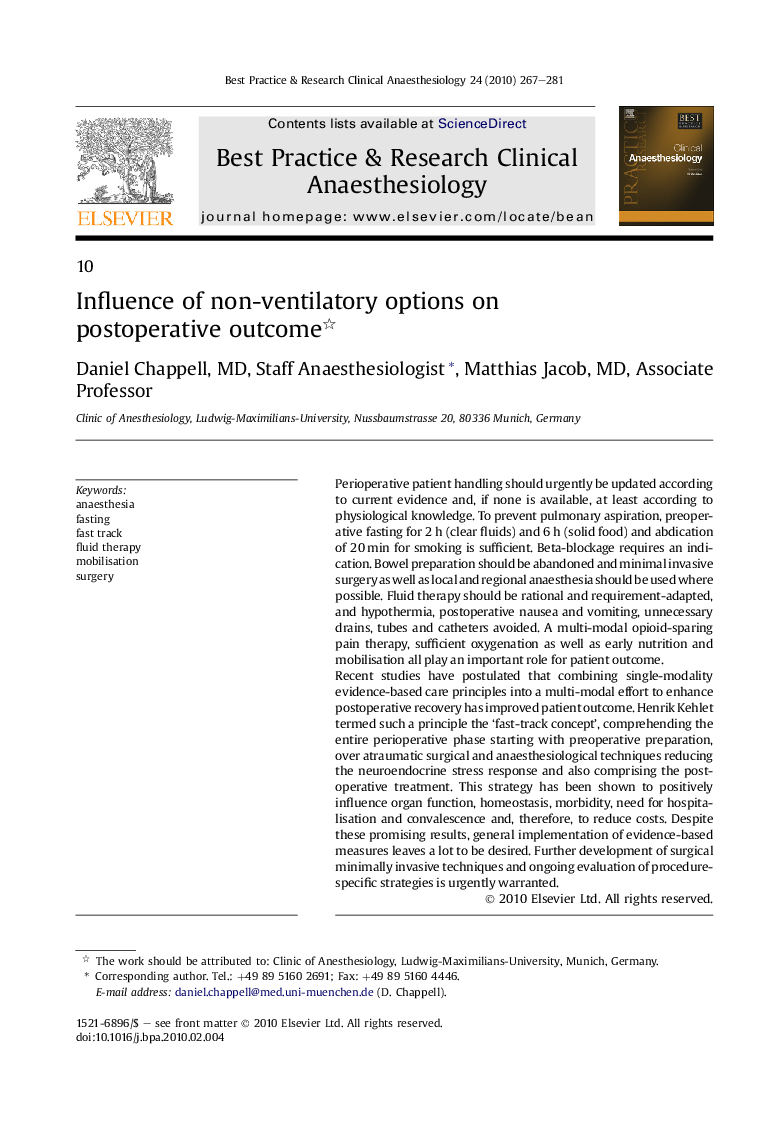| Article ID | Journal | Published Year | Pages | File Type |
|---|---|---|---|---|
| 2748798 | Best Practice & Research Clinical Anaesthesiology | 2010 | 15 Pages |
Perioperative patient handling should urgently be updated according to current evidence and, if none is available, at least according to physiological knowledge. To prevent pulmonary aspiration, preoperative fasting for 2 h (clear fluids) and 6 h (solid food) and abdication of 20 min for smoking is sufficient. Beta-blockage requires an indication. Bowel preparation should be abandoned and minimal invasive surgery as well as local and regional anaesthesia should be used where possible. Fluid therapy should be rational and requirement-adapted, and hypothermia, postoperative nausea and vomiting, unnecessary drains, tubes and catheters avoided. A multi-modal opioid-sparing pain therapy, sufficient oxygenation as well as early nutrition and mobilisation all play an important role for patient outcome.Recent studies have postulated that combining single-modality evidence-based care principles into a multi-modal effort to enhance postoperative recovery has improved patient outcome. Henrik Kehlet termed such a principle the ‘fast-track concept’, comprehending the entire perioperative phase starting with preoperative preparation, over atraumatic surgical and anaesthesiological techniques reducing the neuroendocrine stress response and also comprising the postoperative treatment. This strategy has been shown to positively influence organ function, homeostasis, morbidity, need for hospitalisation and convalescence and, therefore, to reduce costs. Despite these promising results, general implementation of evidence-based measures leaves a lot to be desired. Further development of surgical minimally invasive techniques and ongoing evaluation of procedure-specific strategies is urgently warranted.
